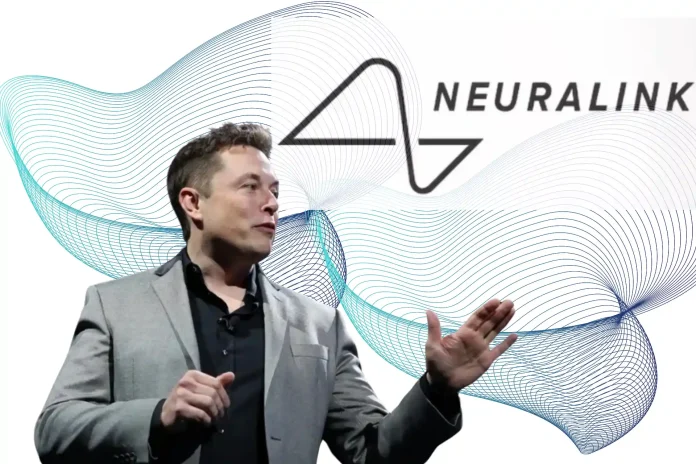Neuralink, the brain-computer interface (BCI) company led by Elon Musk, caused a wave of excitement by announcing the successful implantation of its link chip in a human subject. This neuralink AI brain chip makes a significant milestone in the field of neurotechnology, sparking both excitement and apprehension about its potential impact for the future.
Details on Neuralink AI Brain Chip
The coin-sized Link chip sits settled in the motor cortex, responsible for planning and controlling movement. Thousands of tiny electrodes record and stimulate neural activity, deciphering movement intentions and transmitting them wirelessly to external devices. These devices could be computers, prosthetic limbs, or even smartphones.
The initial focus and availability of neuralink ai brain chip lies in individuals with paralysis or motor impairments in hopes that they could regain control over their digital environment. Imagine controlling a cursor or prosthetic limb just by thinking about it. This could significantly improve their independence and quality of life.
Future Prospects of Basic Motor Control
Neuralink’s aspirations, however, reach far beyond simple movement. They envision a future where neuroscience and AI align together for better memory processing, the chip’s key focus include:
- Augments human cognition, improving memory, focus, and learning.
- Enables telepathic communication, allowing thoughts to be directly transmitted and received.
- Treats neurological disorders, like Parkinson’s and depression, by directly influencing brain activity.
Ethical Concerns and Unanswered Questions
While the potential benefits are attractive, ethical concerns and uncertainties also exist in great numbers:
- Safety and long-term health: Can a foreign object safely reside in the brain for years? Long-term effects on tissue, potential infections, and unintended brain activity manipulation are significant unknowns.
- Data privacy and security: Neural data is immensely sensitive. Hacking breaches and data misuse raise serious privacy concerns.
- Accessibility and equity: Who will have access to this expensive technology, potentially widening existing inequalities?
- Cognitive enhancement ethics: Could manipulating cognitive abilities create unfair advantages or alter fundamental aspects of human identity?
Progress and Challenges of Neuralink
Neuralink’s human implant marks a big step, but at the same time challenges remain. Extensive research and testing are important to address safety concerns and ensure its efficacy. Open and transparent dialogue involving scientists, ethicists, policymakers, and the public is essential to ensure responsible development and implementation. According to recent updates:
- January 17th, 2024:
- Elon Musk tweeted claiming Neuralink could restore full-body functionality to quadriplegics within 6 months.
- January 26th, 2024: Neuralink released a 3-minute video showcasing the implant surgery and initial testing with the participant.
- February 1st, 2024: A Reuters investigation detailed allegations of animal welfare violations during Neuralink’s research, raising further concerns about the company’s practices.
While Neuralink AI brain chip marks a significant advancement, numerous questions about its safety, ethics, and accessibility remain unanswered. Only time will tell if this technology paves the way for a revolutionary future or surrenders to its inherent challenges. But it is worth remembering that this field is rapidly evolving, and new information may emerge constantly. As we navigate this exciting, yet complex terrain, responsible development and public discourse are of prime importance.



